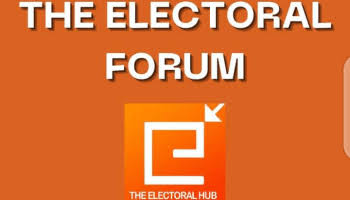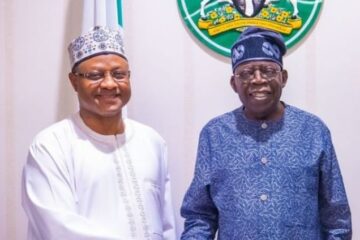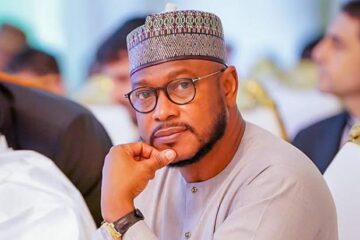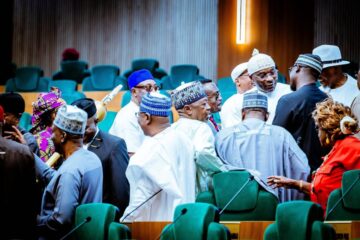
Electoral Hub
A multidisciplinary strategic think tank group, The Electoral Hub, has lamented the poor representation of women and people living with disabilities in the appointment of 19 new Resident Electoral Commissioners for the Independent National Electoral Commission.
The Forum, commended Buhari for his quick appointment of 19 new RECs for the Independent National Electoral Commission.
The statement partly read, “These appointments are right on time to fill the vacancies occasioned by the end of tenure for over 20 RECs whose tenures end on July 6, 2022, and August 15, 2022. These timely appointments are good for the certainty and stability of the electoral process. It is also critical for effective preparation for the 2023 general election.
“However, we are dismayed at the poor representation of women and People with Disabilities in these appointments. The President failed to use this opportunity to right the poor gender representation in his administration with only three women appointees out of the nineteen new appointees.
“Out of these new appointees, it is unfortunate to note that only 15.8 per cent are women, and there is no PWDs representation. 15.8 per cent is an extremely poor representation. This trend is also replicated at the National level with only two women National Commissioners 15.4 per cent out of 13 members Commission and no PWD.
“The National Gender Policy provides for at least 35 per cent representation for women. The Abuja Federal High Judgement of 6 April 2022 also affirms this provision. This action and the dismal figure are discriminatory against women and a violation of Sections 14(3), 42, and 147 (3) of the Constitution of the Federal Republic of Nigeria, Articles 2, 13, and 19 of the African Charter on Human and Peoples Rights and Articles II and IX of the Maputo Protocol.
“The poor state of inclusion at the Commission is deplorable. As the primary electoral management body (EMB) responsible for presidential, governorship, and legislative elections across the country, INEC has the power to promote gender inclusion in the electoral process. However, its ability to do this will be limited if it is not gender-inclusive internally.
“Given the poor state of women’s representation in decision-making processes in Nigeria, it is imperative to have an all-inclusive EMB (gender and PWD inclusive EMB) that can further drive the inclusion of women and other marginalised groups. We, therefore, call on the government to implement the National Gender Policy, which calls for at least 35 per cent affirmative action for women in elective and appointive offices, and Sections 29 and 30 of the PWDs (Prohibition) Act 2018 which mandate the government to ensure that PWDs can effectively and fully participate in the conduct of public affairs without discrimination with at least five per cent inclusion.”











